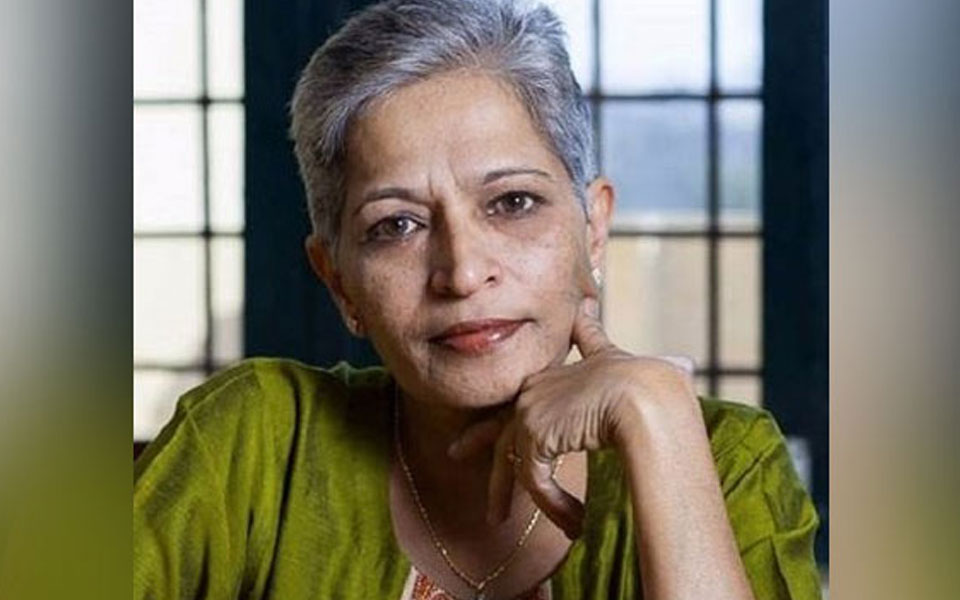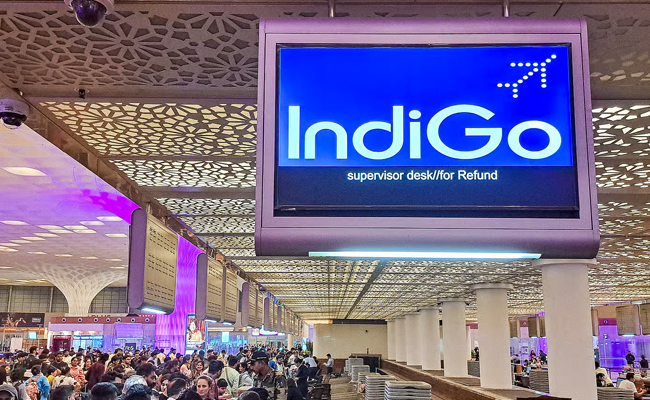Bengaluru : THE NAME of Gauri Lankesh was No. 2 on one of two lists with a total of 34 names, who were marked in 2016 for murder in a diary recovered from a key suspect linked to a radical Hindutva group, the Special Investigation Team (SIT) of Karnataka Police has found. Lankesh was shot dead outside her house a year later, on September 5, 2017.
All the other persons based in Karnataka named in the diary, including theatre legend Girish Karnad whose name was No. 1 on the Lankesh list, have been provided state security. A majority of names from the two lists are from Karnataka and Maharashtra, sources told The Indian Express, adding that security agencies in other states have been alerted.
The diary was among documents found in the possession of Amol Kale, 37, a resident of Pune and a former convenor of the Hindu Janajagruti Samiti (HJS). It shows that the name of Lankesh and 33 others from all over India were drawn up allegedly by the suspect in August 2016.
Kale is suspected to be a key figure in a covert unit linked to the Sanatan Sanstha and its affiliate, the HJS. He was arrested from the Davangere region of Karnataka on May 21 and has been identified by the SIT probing the Lankesh murder as the head of operations of the group that killed her.
The probe has also found that the 55-year-old journalist activist, like the others on the list, was chosen as a target for the strong stance she took against radical Hindutva in her speeches and articles over the years.
In documents validating the seizures made following the arrest of Kale and filed in a court in Bengaluru, the SIT has stated that a sheet with eight names in English — including Nidumamidi Swamiji, a seer opposed to superstition, at No. 8 — were found in the diary in Kale’s possession.
The documents also state that a second list of 26 names was found in another page of the diary with the dateline August 22, 2016. The SIT suspects that the two lists, comprising the names of 34 persons known to be opponents of radical Hindutva, were drawn up by Kale in consultation with others. The diary was found to have been printed in July 2016.
“These lists were some kind of tentative collection of names compiled at the end of discussions by a small group of people. They seem to be random lists which would undergo changes. Though Lankesh was named at No. 2, she was targeted first,’’ police sources said.
The SIT investigation has revealed that Kale deployed 26-year-old Parashuram Waghmare from the Vijayapura region in north Karnataka, whom he recruited and trained using the radical network of Sanatan Sanstha and HJS in Karnataka and Maharashtra, to kill Lankesh.
The SIT suspects that the execution of the plot began around eight months prior to the murder with one of the suspects identifying Lankesh’s house and carrying out a preliminary recce.
The plot gathered momentum in June 2017, the SIT has indicated in court documents. “In June 2017, Amol Kale alias Bhaisaab and Dada (a missing suspect) summoned the accused Manohar Edave alias Manoj to the Sweekar Hotel in Belgaum and told him to study the movements and routine of Gauri Lankesh who had been criticizing the Hindu religion,’’ the SIT stated in a May 31 remand plea in court.
The SIT probe found that Kale and the four others arrested began plotting the murder of Kannada writer and academic Prof K S Bhagwan in Mysuru two months after the execution of the plot to kill Lankesh.
Bhagwan’s name is among those found in Kale’s diary. Among the others on the lists are Kannada writers, Yogesh Master, Chandrashekhar Patil and Banajagere Jayaprakash, and former Karnataka backward castes commission chairman C S Dwarkanath.
Several of them, including Karnad, were provided protection soon after the murder of Lankesh. Jayaprakash, Bhagwan, Patil and Yogesh are among the literary personalities, apart from Baragur Ramachandrappa, Patil Putappa, Chennaveera Kanavi and Nataraj Huliyar, who have been provided state protection. Security cover has also been provided to Narendra Nayak, the rationalist, and S M Jamdar, the former IAS officer and proponent of a separate religion status for the Lingayat community.
The diary entries of Kale and an associate Sujeet Kumar, 38, a former activist of the HJS from Karnataka, have revealed that a covert network of nearly 30 Hindutva activists was assembled in the state to carry out subversive activities.
The SIT has so far arrested nine persons allegedly involved in the murder, including alleged shooter Waghmare. On Monday, it arrested a 27-year-old man from Hubli, Ganesh Miskin, who allegedly took Waghmare to Lankesh’s residence on a motorcycle. It also arrested another Hubbali resident, 28-year-old Amit Baddi, who allegedly drove one of the two cars used to support the operation.
courtesy : indianexpress.com
Let the Truth be known. If you read VB and like VB, please be a VB Supporter and Help us deliver the Truth to one and all.
Bengaluru (PTI): The Karnataka government has issued directions to municipal corporations across the state to regulate and prohibit feeding pigeons in public places, citing serious public health concerns.
Deputy Secretary to Government V Lakshmikanth has written to the Urban Development Department requesting it to issue directions to the Greater Bengaluru Authority (GBA) and all municipal corporations to take immediate steps to implement the measures.
In an official note dated December 16 issued by the Health and Family Welfare Department and released to the media on Wednesday, the department said uncontrolled feeding of pigeons in public places has resulted in large congregations of birds, excessive droppings and serious health concerns, particularly respiratory illnesses linked to prolonged exposure to pigeon droppings and feathers such as hypersensitivity pneumonitis and other lung diseases.
ALSO READ: Chinese GPS tracker found on seagull near Karwar Coast
"The commissioner, the Greater Bengaluru Authority and the Commissioners and chief officers of other municipal corporations shall take necessary action to mitigate the causes of dangerous disease spread by pigeon and enforce specified guidelines in their respective jurisdiction," the note said.
According to the department, these include a prohibition on feeding pigeons or causing pigeons to be fed in areas where it may cause nuisance or pose a health hazard to the public. Pigeon feeding shall be permitted only in designated areas in a controlled manner, subject to certain conditions.
"The designated areas may be selected in consultation with stakeholders. The responsibility for upkeep of the designated areas and compliance to the directions shall be taken up by some charitable organisation or an NGO. The feeding in designated areas shall be permitted only for some limited hours in the day," it said.
The note further stated that authorised officers of local authorities shall issue on-the-spot warnings and may impose fines for violation of the order, or lodge complaints to prosecute offenders under Sections 271 (Negligent act likely to spread infection of disease dangerous to life) and 272 (Malignant act likely to spread infection of disease dangerous to life) of the Bharatiya Nyaya Sanhita.
It also directed local authorities to conduct public awareness campaigns, including the display of signboards, banners and digital messages, explaining the health hazards associated with pigeon droppings and feathers, the content of the regulatory directions and penalties for violations, and alternative humane methods of bird conservation that do not endanger public health.





